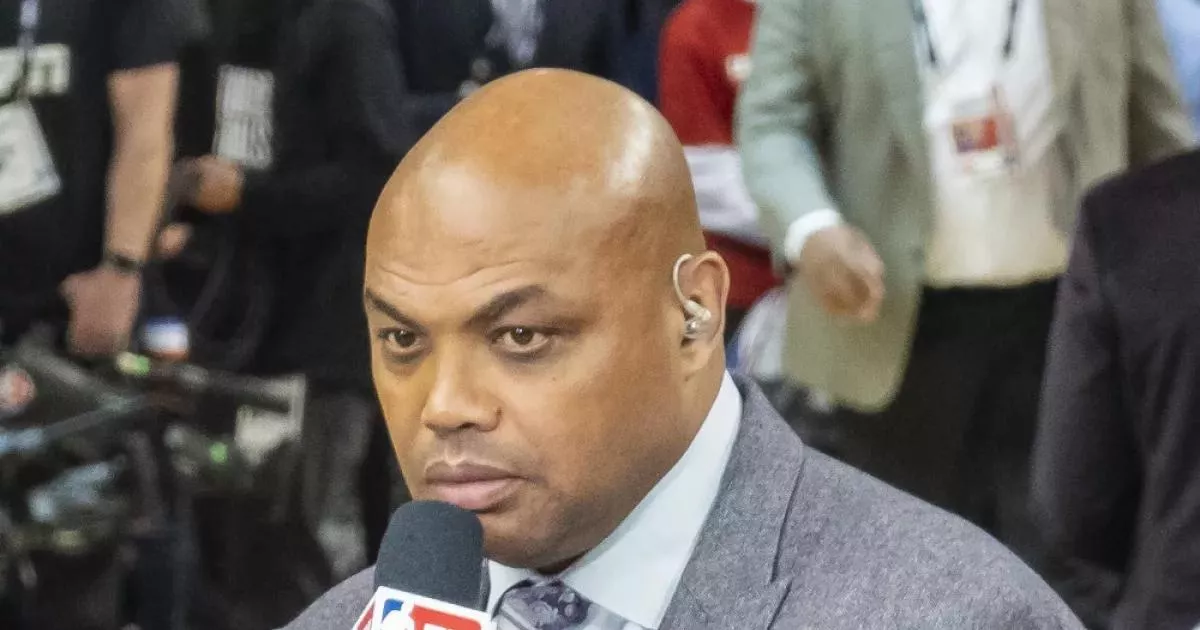Charles Barkley, nicknamed "Sir Charles," is a retired American professional basketball player and current television analyst. He played 16 seasons in the NBA, primarily as a power forward, known for his rebounding and scoring prowess despite being shorter than typical players at his position. Barkley's achievements include being an 11-time NBA All-Star, 11-time All-NBA Team member, and the 1993 NBA MVP. He was also recognized as one of the NBA's greatest players, earning spots on the league's 50th and 75th anniversary teams.
1956: 1956 U.S. Olympic team
In 1956, The U.S. Olympic team achieved the highest average point difference.
February 20, 1963: Charles Barkley's Birth
On February 20, 1963, Charles Wade Barkley was born. He is an American former professional basketball player and current television analyst.
1967: Most Rebounds in All-Star Game
At his fifth All-Star Game appearance during the 1989-90 season, Charles Barkley led the East to victory and grabbed 22 rebounds, the most rebounds in an All-Star Game since Wilt Chamberlain recorded 22 in 1967.
1974: 76ers Miss Playoffs
In the 1988-89 season, the 76ers failed to make the playoffs for the first time since the 1974-75 season.
1976: Suns First NBA Finals Appearance
In 1976, the Phoenix Suns made their first NBA Finals appearance.
1983: Joined a Veteran Team
In 1984, Charles Barkley joined a veteran team that included Julius Erving and Moses Malone, players who had taken Philadelphia to the 1983 NBA championship.
1984: Led Auburn to NCAA Tournament
In 1984, Charles Barkley led the Auburn Tigers to their first NCAA tournament in school history.
1984: Olympic Team Cut
In 1984, Charles Barkley tried out for the United States men's basketball team for the Summer Olympics but was cut due to poor defense, despite outplaying many front-court players.
1984: Drafted by the Philadelphia 76ers
In 1984, Charles Barkley was drafted by the Philadelphia 76ers as the fifth pick of the NBA draft after being an All-American at Auburn University.
1984: SEC Player of the Year
In 1984, Charles Barkley was named Southeastern Conference (SEC) Player of the Year while playing at Auburn University.
1984: Invited to Olympic Tryouts
In 1984, Charles Barkley was one of 74 college players invited to the spring tryouts for the U.S. Olympic team.
1985: Named to All-Rookie First Team
In 1985, during his rookie season, Charles Barkley was named to the All-Rookie First Team.
November 4, 1986: Career-High Assists
On November 4, 1986, Charles Barkley recorded 34 points, 10 rebounds, and a career-high 14 assists in a loss to the Indiana Pacers.
1986: NBA Leading Scorer
Charles Barkley led the NBA in 2-point field goal percentage during the 1986-87 season.
1986: Led the league in rebounding average
In the 1986-87 season, Charles Barkley led the league in rebounding average and earned his first rebounding title.
March 20, 1987: 25 Rebound Game
On March 20, 1987, Charles Barkley recorded 26 points, 25 rebounds (including 16 offensive rebounds), and nine assists in a win over the Denver Nuggets.
1987: NBA Effective Field Goal Percentage Leader
Charles Barkley led the league in effective field goal percentage in the 1986-87 season.
November 30, 1988: 41 Points, 22 Rebounds and Six Steals
On November 30, 1988, Charles Barkley recorded 41 points, 22 rebounds, five assists, and six steals in a win over the Blazers.
1988: NBA Effective Field Goal Percentage Leader
Charles Barkley led the league in effective field goal percentage in the 1987-88 season.
1989: NBA Offensive Rating Leader
Charles Barkley led the league in offensive rating in the 1988-89 season.
1989: Player of the Year
During the 1989–90 season, Charles Barkley was named Player of the Year by The Sporting News and Basketball Weekly.
1990: NBA Offensive Rating Leader
Charles Barkley led the league in offensive rating in the 1989-90 season.
1990: Fight with Bill Laimbeer
In 1990, Charles Barkley was involved in a fight with Detroit Pistons center Bill Laimbeer, resulting in a record total $162,500 fine.
March 1991: Spitting Incident
In March 1991, Charles Barkley spat on a young girl while attempting to spit at a heckler, causing national controversy.
March 26, 1991: Spitting Incident
On March 26, 1991, during a game versus the New Jersey Nets, Charles Barkley attempted to spit on a heckler but accidentally hit a young girl. He was suspended and fined, but later apologized and befriended the girl and her family.
1991: Honoring Magic Johnson
In the 1991-92 season, Charles Barkley wore number 32 instead of his usual 34 to honor Magic Johnson, who had announced he was HIV-positive. He also apologized for making light of Johnson's condition.
July 17, 1992: Traded to Phoenix Suns
On July 17, 1992, Charles Barkley was officially traded to the Phoenix Suns in exchange for Jeff Hornacek, Tim Perry, and Andrew Lang.
1992: First Olympic Gold Medal
In 1992, Charles Barkley competed in the Olympic Games and won a gold medal as part of the 'Dream Team', averaging 18.0 points and setting an Olympic single-game scoring record.
1992: Competed in the Olympic Games
In 1992, Charles Barkley competed in the Olympic Games, winning a gold medal as a member of the U.S. national team.
1992: Joined the Dream Team
In 1992, Charles Barkley helped the Dream Team compile a perfect record.
1992: Trade to Phoenix and Olympic Appearance
In 1992, Charles Barkley was traded to the Phoenix Suns and reverted his jersey number to 34. International rules changed, allowing NBA players to participate in the Olympics, and Barkley joined the 'Dream Team'.
1993: Hosting Saturday Night Live
Charles Barkley hosted Saturday Night Live on four separate occasions between 1993 and 2018.
1993: Controversial Role Model Statement
In 1993, Charles Barkley declared that sports figures should not be considered role models, stirring national controversy.
1993: Earned League MVP Honors
In 1993, Charles Barkley earned league MVP honors, showcasing his physical style of play.
1993: Named NBA MVP
In 1993, Charles Barkley was named the NBA Most Valuable Player (MVP).
1993: "I am not a role model" Nike commercial
In 1993, Charles Barkley's argument that athletes should not be considered role models was amplified when he wrote the text for his "I am not a role model" Nike commercial, sparking national debate.
1993: Voted League MVP and Led Suns to NBA Finals
In 1993, Charles Barkley, playing for the Phoenix Suns, was voted the league's MVP while leading the team to the NBA Finals.
1995: Final Season with Suns
In the 1995-96 season, Charles Barkley played his last season with the Phoenix Suns, leading the team in scoring, rebounds, and steals, and achieving his tenth All-Star Game appearance.
October 25, 1996: Suspension and Fine for Fighting
On October 25, 1996, Charles Barkley was suspended for the season opener and fined $5,000 for fighting Charles Oakley during a preseason game.
1996: Led Olympic Team in Scoring and Rebounds
At the 1996 Atlanta Summer Olympic Games, Charles Barkley led the team in scoring, rebounds, and field goal percentage, achieving a perfect 8-0 record and capturing the gold medal.
1996: Second Olympic Gold Medal
In 1996, Charles Barkley competed in the Olympic Games and won a second gold medal as a member of the United States men's basketball team.
1996: Appearance in "Space Jam"
In 1996, Charles Barkley played himself in the film "Space Jam".
1996: Member of the 1996 Men's Basketball team
In 1996, Charles Barkley was instrumental in helping the 1996 Men's Basketball team compile a perfect record.
1996: Won Gold Medal in Olympics
In 1996, Charles Barkley won another gold medal as a member of the U.S. national team in the Olympic Games.
1997: Injury-Plagued Season
The 1997-98 season was another injury-plagued year for Charles Barkley, where he averaged 15.2 points and 11.7 rebounds per game for the Houston Rockets.
November 10, 1999: Ejection From Game Against Lakers
On November 10, 1999, Charles Barkley, along with Shaquille O'Neal, was ejected from a game against the Los Angeles Lakers after an altercation where Barkley threw the ball at O'Neal.
December 8, 1999: Ruptured Quadriceps Tendon
On December 8, 1999, Charles Barkley's season and career seemingly ended after rupturing his left quadriceps tendon in Philadelphia.
April 19, 2000: Final Game and Retirement
On April 19, 2000, Charles Barkley returned for one final game against the Vancouver Grizzlies, scoring a basket and retiring to a standing ovation, overcoming the mental block of his injury.
2000: Retired from the NBA
In 2000, Charles Barkley retired as the fourth player in NBA history to achieve 20,000 points, 10,000 rebounds, and 4,000 assists.
2000: Foreword for "The Life of Reilly"
In 2000, Charles Barkley wrote the foreword for Rick Reilly's book "The Life of Reilly", joking about throwing Reilly through a plate glass window.
March 3, 2001: Auburn Retires Jersey
On March 3, 2001, Auburn retired Charles Barkley's No. 34 jersey.
2002: Release of "I May Be Wrong, But I Doubt It"
In 2002, Charles Barkley released the book "I May Be Wrong, But I Doubt It", with editing and commentary by Michael Wilbon.
2006: Inducted into the Naismith Memorial Basketball Hall of Fame
In 2006, Charles Barkley was inducted into the Naismith Memorial Basketball Hall of Fame for his individual career.
December 31, 2008: Arrested for DUI
On December 31, 2008, Charles Barkley was arrested in Scottsdale, Arizona for driving under the influence after running a stop sign. He was later sentenced to jail time and fined.
February 19, 2009: Return to TNT After Hiatus
On February 19, 2009, Charles Barkley returned to TNT after a two-month hiatus following his DUI arrest, discussing the incident on the pregame show.
2010: Admits to Taking Money from Agents
In 2010, Charles Barkley admitted that he asked for and had been given money from sports agents during his career at Auburn.
2010: Inducted into Hall of Fame as part of Dream Team
In 2010, Charles Barkley was inducted into the Naismith Memorial Basketball Hall of Fame as a member of the 1992 Olympic "Dream Team".
2016: Disgust towards Donald Trump's Message
As early as 2016, Charles Barkley criticized President Donald Trump, stating his disgust towards the words and messages that Trump was promoting throughout the presidential race.
August 2017: Response to Confederate monument controversy
In August 2017, Charles Barkley responded to the controversy generated by the removal of Confederate monuments.
September 2017: Criticism of President Trump
In September 2017, Charles Barkley expressed his disappointment in President Trump for calling out Colin Kaepernick for kneeling during the U.S. National Anthem during the 2016 NFL season. However, Barkley stated he does not support athletes kneeling during the National Anthem as a form of protest.
December 2017: Mocking President Trump's tax bill
In December 2017, Charles Barkley mocked President Trump's tax bill, stating it favored the rich.
2017: Support for Doug Jones in Alabama Senate Election
In 2017, Charles Barkley supported Democrat Doug Jones in the United States Senate special election in Alabama, arguing that Roy Moore should have been disqualified due to his association with a white separatist.
2018: Hosting Saturday Night Live
Charles Barkley hosted Saturday Night Live on four separate occasions between 1993 and 2018.
2019: Appearance on "The Goldbergs"
In 2019, Charles Barkley appeared in "The Piña Colada Song" episode of "The Goldbergs" as a gym teacher and alien conspiracy theorist.
2019: NBA Season Restart Concerns
In 2019, Charles Barkley expressed optimism about the NBA's planned restart to the 2019-2020 season in the NBA bubble, but worried about some players testing positive for COVID-19.
2020: Concern over Sports Becoming Too Political
In 2020, Charles Barkley expressed concern that sports were becoming too political and resembling a circus.
2020: Views on Defunding the Police and Breonna Taylor's Death
In 2020, Charles Barkley spoke out against defunding the police and commented on the killing of Breonna Taylor, stating that her situation was not the same as George Floyd or Ahmaud Arbery due to her boyfriend shooting at the cops.
2020: Views on Children Returning to School During COVID-19
In 2020, Charles Barkley stated that sending kids back to school during the COVID-19 pandemic was unsafe, but keeping them at home would widen the gap between the rich and the poor.
2023: High PER in NBA History
As of 2023, Charles Barkley has the 12th highest PER in NBA history.
Mentioned in this timeline

Basketball is a team sport played on a rectangular court...

Donald John Trump is an American politician media personality and...

Barack Obama the th U S President - was the...

Martin Luther King Jr was a pivotal leader in the...
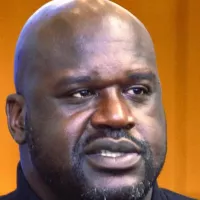
Shaquille O'Neal or Shaq is a celebrated American former professional...
CBS Broadcasting Inc CBS is a prominent American commercial broadcast...
Trending
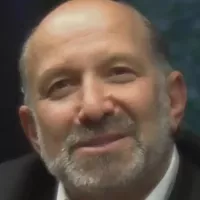
40 minutes ago Howard Lutnick Faces Scrutiny Over Epstein Ties; College Library Name in Question.
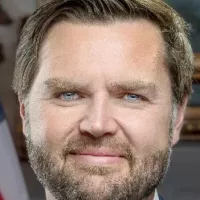
2 hours ago Trump Considers Vance, Rubio for 2028; MAGA Heirs Guess Future Plans.
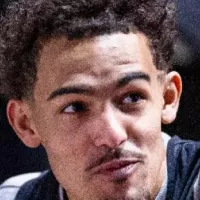
2 hours ago Trae Young's Return to Atlanta and Approaching Wizards Debut Excites Fans

2 hours ago Alexander Zverev reveals diabetes, plans harder hitting for 2026 tennis success.
2 hours ago Cason Wallace shines under pressure; Thunder unlock his potential after breakout game.
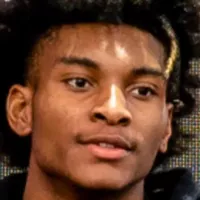
2 hours ago Bucks' young guards: Kevin Porter Jr., Cam Thomas, and their roles with Giannis.
Popular

Jesse Jackson is an American civil rights activist politician and...

Susan Rice is an American diplomat and public official prominent...

Barack Obama the th U S President - was the...

Michael Joseph Jackson the King of Pop was a highly...

Bernie Sanders is a prominent American politician currently serving as...

XXXTentacion born Jahseh Dwayne Ricardo Onfroy was a controversial yet...
